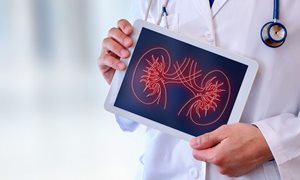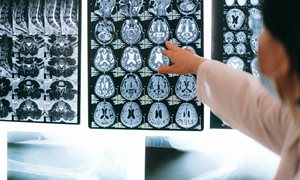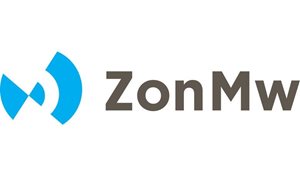25 April 2018
An academic medical network with regard for the individual patient and innovation that leads us into the future – who could disagree? After all, who would like to be treated a dime a dozen using last century’s technology? The vision of the Radboudumc strongly appeals to our intuition. New is better. Or is it?
Perhaps it’s in our nature? We’re so good at attracting innovation – and so poorly equipped to resist. Indeed, patients may punish our institution when we neglect to hop the next big robotics train, or when we bravely disinvest in technology that turned out to be more than we bargained for. Once innovation enters our doors, vested interests and psychological biases will keep it there.
In my field of health technology assessment there is emerging awareness that the promise of innovation is limited. To be more precise, the value of innovation is limited by what we’re already achieving in healthcare today and by the constraints in our resources.
Mine is not a plea to ignore the future and change nothing. Rather, there’s hard work ahead of us in finding out what and how we want to change first. We find ourselves amidst a wave of innovation, each one more promising than its predecessor. Time and again we see the perfect novel solution to a problem that does not really exist. Impressive, high-level technology whose added value to the real-world patient is unclear at best. At an incremental price to our already overburdened budget, of course, stressing the accessibility of our healthcare system in the future. What I think we need and what I missed so much, is to take that one step back that allows us to reflect.
Before asking for solutions we should focus on identifying problems and needs. Where are the biggest windows of opportunity? What kind of innovation do we need? Being brave enough to make choices is one of Radboudumc’s strengths I’ve been missing in this recent strategy acceleration.
Innovation, sustainability, and affordability is a challenging triangle to navigate. Keeping the balance requires a priori critical evaluation of which innovations to pursue and why. We need complex, scary, real-world decision-making before swinging our doors wide open.
Anouck Kluytmans, MSc
member of the theme Healthcare improvement science
 Blog by Anouck Kluytmans, researcher in early health technology assessment methodology at the Department for Health Evidence.
Blog by Anouck Kluytmans, researcher in early health technology assessment methodology at the Department for Health Evidence.
An academic medical network with regard for the individual patient and innovation that leads us into the future – who could disagree? After all, who would like to be treated a dime a dozen using last century’s technology? The vision of the Radboudumc strongly appeals to our intuition. New is better. Or is it?
Perhaps it’s in our nature? We’re so good at attracting innovation – and so poorly equipped to resist. Indeed, patients may punish our institution when we neglect to hop the next big robotics train, or when we bravely disinvest in technology that turned out to be more than we bargained for. Once innovation enters our doors, vested interests and psychological biases will keep it there.
In my field of health technology assessment there is emerging awareness that the promise of innovation is limited. To be more precise, the value of innovation is limited by what we’re already achieving in healthcare today and by the constraints in our resources.
Mine is not a plea to ignore the future and change nothing. Rather, there’s hard work ahead of us in finding out what and how we want to change first. We find ourselves amidst a wave of innovation, each one more promising than its predecessor. Time and again we see the perfect novel solution to a problem that does not really exist. Impressive, high-level technology whose added value to the real-world patient is unclear at best. At an incremental price to our already overburdened budget, of course, stressing the accessibility of our healthcare system in the future. What I think we need and what I missed so much, is to take that one step back that allows us to reflect.
Before asking for solutions we should focus on identifying problems and needs. Where are the biggest windows of opportunity? What kind of innovation do we need? Being brave enough to make choices is one of Radboudumc’s strengths I’ve been missing in this recent strategy acceleration.
Innovation, sustainability, and affordability is a challenging triangle to navigate. Keeping the balance requires a priori critical evaluation of which innovations to pursue and why. We need complex, scary, real-world decision-making before swinging our doors wide open.
Anouck Kluytmans, MSc
member of the theme Healthcare improvement science
Related news items

Body composition is more important than BMI for renal cancer survival rates
11 January 2022 Body composition is important for survival rates in renal cell cancer. Research from the Radboudumc shows that low muscle quality and low organ fat are associated with poor survival. This involves different stages of renal cancer, ranging from stage I-III to stage IV. go to page
Research into treatment for bladder pain syndrome will now be reimbursed
4 August 2021 Bladder pain syndrome, also called interstitial cystitis, is a chronic benign condition of the urinary bladder go to page
Millions of euros for study of laser treatment for glioblastoma
2 April 2021 A research group from Radboudumc and UMC Utrecht is to investigate laser treatment of a rare brain tumor, glioblastoma. 3.9 million euros has been made available for the research by Zorginstituut Nederland and ZonMw, under the auspices of the Subsidy Scheme for Promising Care. go to page
Growing consensus in Europe on prostate MRI
4 June 2020 A group of radiologists and urologists has made a new set of recommendations to improve the quality of prostate MRIs. go to page
Plugging the gap ZonMw/Health Holland grant
3 March 2020 RIMLS en RIHS researchers Willeke Daamen, Frank Vandenbussche, Joris van Drongelen, Toin van Kuppevelt and Janneke Grutters have been granted 1.3 million euro for the development and evaluation of a new technology to prevent premature rupture of fetal membranes (iPPROM). go to page